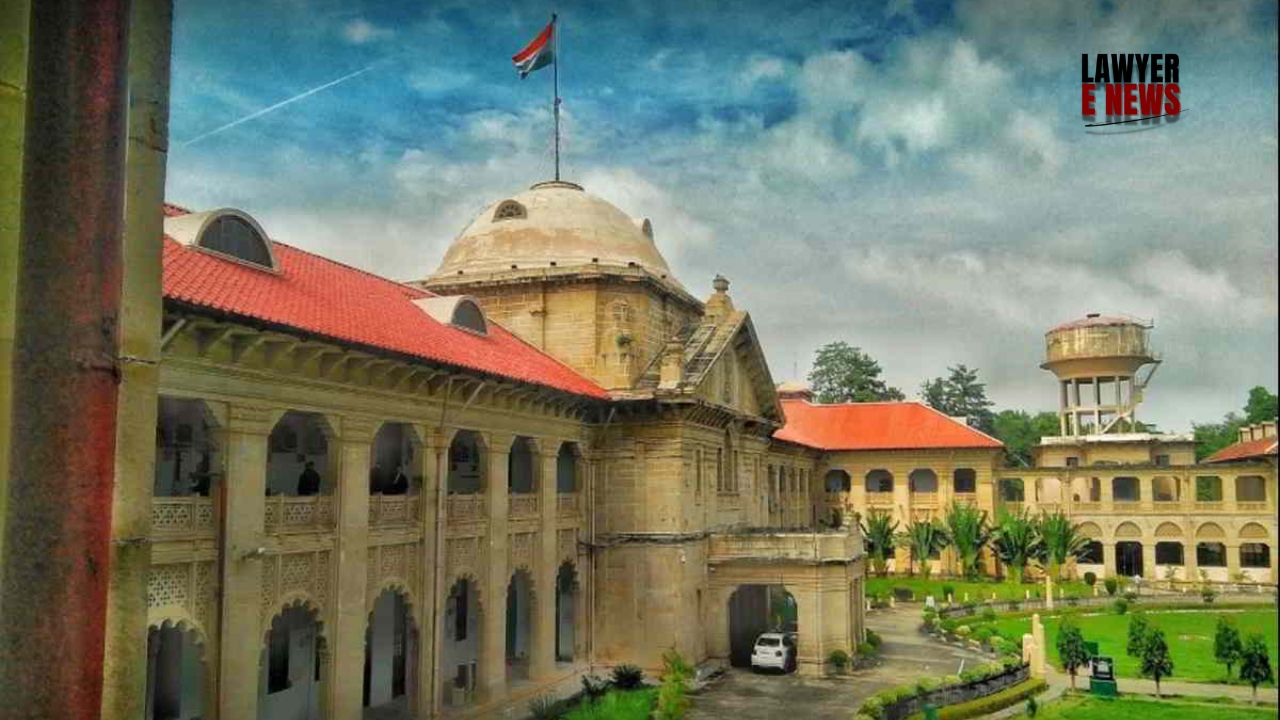-
by sayum
14 February 2026 2:22 PM



The Allahabad High Court, in a significant ruling, has declared the alleged marriage between the appellant and the respondent as null and void due to the lack of customary rites and ceremonies required under the Hindu Marriage Act, 1955. The judgment, delivered by a bench comprising Justices Rajan Roy and Om Prakash Shukla, overturns the Family Court's decision which had dismissed the appellant's suit and decreed the respondent's suit for restitution of conjugal rights.
Facts of the Case: The appellant filed a suit under Section 12 of the Hindu Marriage Act, 1955, claiming that her alleged marriage to the respondent was fraudulent and without her consent. The respondent, on the other hand, filed a suit under Section 9 of the same Act, seeking restitution of conjugal rights. Both suits were consolidated and decided by a common judgment, which the appellant challenged.
The appellant's family, influenced by the respondent, a self-proclaimed spiritual guru, was allegedly manipulated into believing that a marriage had taken place. The respondent claimed the marriage was solemnized on 05.07.2009 at Arya Samaj Mandir and registered on 03.08.2009. However, the appellant contended that she had never consented to the marriage and that it was based on deceit and fraud.
Court Observations and Views:
Credibility of Customary Rites: The High Court scrutinized the evidence and found that the necessary rites and ceremonies for a valid Hindu marriage, as stipulated in Section 7 of the Hindu Marriage Act, were not performed. "The respondent has failed to prove that the marriage was solemnized in accordance with the customary rites and ceremonies," the bench noted. The court highlighted that the presence of the appellant at the Arya Samaj Mandir and the Registrar's Office did not suffice to establish a valid marriage.
Legal Reasoning: The judgment extensively discussed the importance of performing the requisite ceremonies for a Hindu marriage. The court reiterated that a valid marriage under Hindu law requires the performance of specific rites and ceremonies, which were not proven in this case. "The burden to prove the marriage as per Hindu rites and customs was upon the respondent, and he failed to discharge this burden," the court stated.
Quotes from the Judgment: Justice Rajan Roy remarked, "Unless and until the marriage is performed with appropriate ceremonies and in due form, it cannot be said to be 'solemnized' in accordance with Section 7 of the Hindu Marriage Act, 1955."
Justice Om Prakash Shukla added, "The issuance of a marriage certificate by itself does not establish a valid marriage in the absence of proof of the requisite ceremonies."
Conclusion: The Allahabad High Court's ruling underscores the critical importance of adhering to the prescribed ceremonies for a Hindu marriage. By declaring the alleged marriage null and void, the judgment reinforces the legal framework that safeguards individuals from fraudulent claims of marriage. This decision is expected to have a significant impact on similar cases, emphasizing the necessity of proving the performance of customary rites and ceremonies.
Case Title: XXXXX VS XXXX
Date of Decision:05.07.2024
